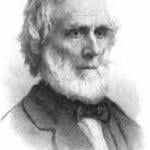Editors' Note: This article is part of the Patheos Public Square on Myth, Imagination, Fairy Tales, and Fantasy. And Faith. Read other perspectives here.
The heart of Christianity is a myth which is also a fact. The old myth of the Dying God, without ceasing to be myth, comes down from the heaven of legend and imagination to the earth of history. ~ C. S. Lewis
"The word myth —"
"How dare you say the Gospel is a myth! That is heretical!" The interrupter was almost apoplectic — his face colouring, voice rasped with indignation. I'd been asked to give a lecture on the role J. R. R. Tolkien played in C. S. Lewis's conversion to Christianity. The seminary audience was well-read in Lewis's apologetics but a show of hands had revealed that most only knew his and Tolkien's fiction through movies, if at all. I'd not had a chance to finish my sentence: "The word myth is often a red-flag for Christians…" before this professor was on his feet, gesticulating wildly. In retrospect I couldn't have asked for a more effective hook for my audience. Regardless their initial interest, they were now attentive to my every word.
Although that occasion was the most dramatic, I have become accustomed to frowns crossing faces when I first utter the word myth. The frowns frequently change to expressions of perplexity once I source the quotation at the top of this article as being from the adulated Lewis. Tolkien, sure: many hold suspect a man who writes fairy tales for adults. But Lewis?! Despite the fame of Narnia, many churched folk think of him as primarily a theologian, an apologetics warrior for "orthodox" faith. But Lewis was not primarily an author of theology books, despite his many publications. He was primarily — like his friend and colleague Tolkien — a professor of Literature, a teacher and lover of Story. Disregarding this fact has led to significant misinterpretations and misrepresentations of Lewis; paying attention to it may help redress a substantial cultural ignorance of centuries of Christian stories spanning from the second to the 21st century, as well as assuage this pervasive fear of myth. Throughout those hundreds of years of Christian history, engagement with myth was central to practiced faith. Such fear of it is rather new.
It was a shared high regard for this literary history that facilitated Tolkien's evangelization of Lewis, and attention to their conversations can appease the dis-ease that arises from the frequent misunderstanding (and misuse) of the stigmatized word myth. Lewis explained the academic definition well: "a story out of which ever varying meanings will grow for different [recipients] in different ages" (C. S. Lewis' letters, 22 September 1956). Regardless of whether or not that story actually happened, what marks it as mythic is that it has persisted across time and cultures, repeatedly considered relevant by at least some part of the population.
Tolkien and Lewis were particularly fascinated by tales they considered mythopoeic — somehow containing a richness and depth able to incur transformation within the reader or listener. Tolkien challenged Lewis that his prejudice against Christianity was impeding him from admitting that its central myth — the story of Christ's life and resurrection — could have such a transformative effect on him (regardless of whether Lewis believed it factual), as it had for centuries of readers previous. Eventually Lewis ceded the point. It was some time before he joined Tolkien in actually believing the resurrection factual as well as mythopoeic, but when he did he wrote: "[Tolkien] has convinced me that the story of Christ is simply a true myth: a myth working on us in the same way as the others, but with this tremendous difference that it really happened" (C. S. Lewis's letters, 18 September 1931).
This shift for Lewis deepened his already profound love of literature. Like Tolkien, he had observed that story evokes story — that mythopoeic tales arise from engagement with the mythic that came before. It was a pattern identifiable in the Classics, and abundantly evidenced in the Scriptures: the more familiar one is with the stories found in the Old Testament, the more profound one's understanding of each subsequent tale, the earlier truths intentionally infusing and informing, culminating in those to which Christ gives voice and then himself enacts. And so continue the storytellers who follow: Beowulf, Chaucer, Spenser, Mallory, Shakespeare — all products of engagement with truths found in previous myths both fictive and factual…whether pre-dating or postdating the myth the authors considered the most transformative of them all.




